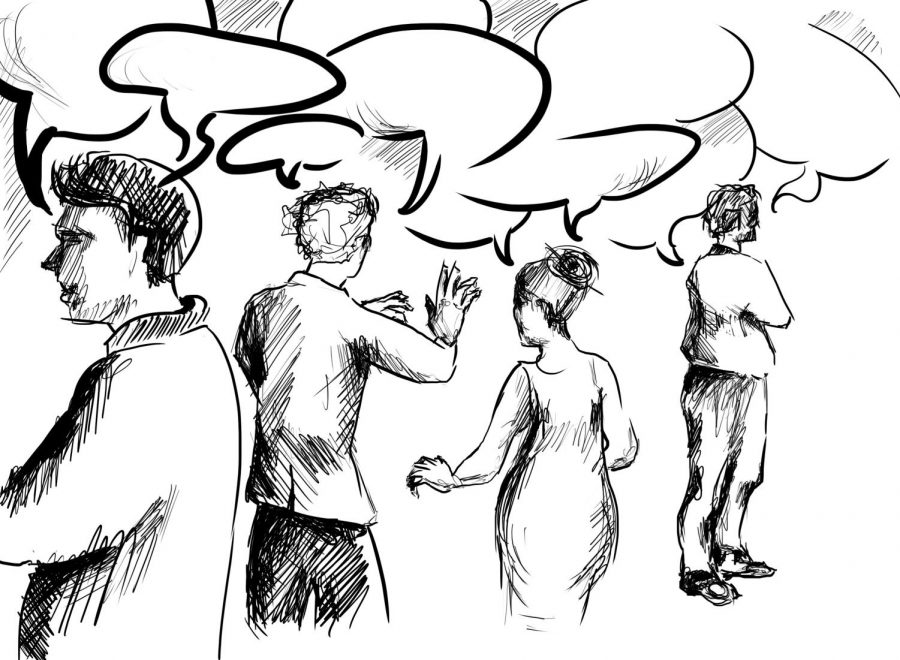Considering News Source Confirmation Bias
September 24, 2018
It seems like everyone knows everything nowadays. This increase in certainty is enabled by technology, letting us tap into information sources that only say what we want to hear. Because of this lack of informational diversity, we are led to see opinions as facts. Essentially, it boils down to the rising issue of ‘confirmation bias:’ the idea that we only give credence to information that affirms our worldview. Instant information access allows us to take this to a new extreme.
So, people believe what they want to believe; that’s not new. Why is this now a problem?
By having such a wide array of news sources at our fingertips, we can pick our own outlets. We can avoid the painful consideration that we are often wrong by choosing the channels that resonate with us. We can avoid the discomfort caused by shifts in outlook. Simply put, in subscribing to a singular news source we conserve the energy it would take to disagree, no matter who is ‘right.’

So, there’s no ideological challenge anymore — no reason to change our minds. All chosen information sources serve to reaffirm our current beliefs. Insulation has allowed us to have unchallenged opinions. Not only do we have biases in information intake, we have external filters that bias the information for us. Obviously, this presents accuracy issues.
The danger lies in the phenomenon that repeatedly stated opinions blur into subjective fact. It happens in the news all the time. A statement is made and continually repeated, one which plenty of people would disagree with, but an opposing point of view is simply not offered. This makes objective and subjective merge. When information is distributed in this way, we, the viewers, lose the most valuable aspect of democratic discourse: disagreement.
And when there is disagreement, it’s not the valuable kind. Public political discourse is a pissing competition: who can shout their opinion the loudest. The thought process seems to be, “I know I’m right because all my information tells me I’m right.” The rise of the “Fuck Trump” movement is the epitome of this. It is to say, “If you don’t share my beliefs, you are just wrong. Wrong beyond the point of reconciliation. Wrong enough to be hated.” Anger and statements of hatred are not arguments, and they are not how progress is made.
There are two potential solutions: one personal and one societal. Either we must purposefully take in information from a source that doesn’t mirror our viewpoint or news sources must present accurate representations of arguments. Chances are, if we do the first, the second will follow. What if we sought out a news source with an opposing viewpoint occasionally? Why is that so unthinkable? Conscious diverse media consumption is at least a step in the right direction regarding opinion formation.
We need to realize that no news or information source can convey the objective truth, at least yet. In doing this, we will acknowledge that most of our opinions are formed too fast, and are likely inaccurate, not taking in all opposing viewpoints. This is the first step toward conscious news consumption.
A quote by Ram Dass succinctly describes the problem:
“As long as you have certain desires about how it ought to be, you can’t see how it is.”





Walt Hillemann • Oct 15, 2018 at 11:11 pm
Great column!
Your “print function” fails to include author’s name. Please fix this.